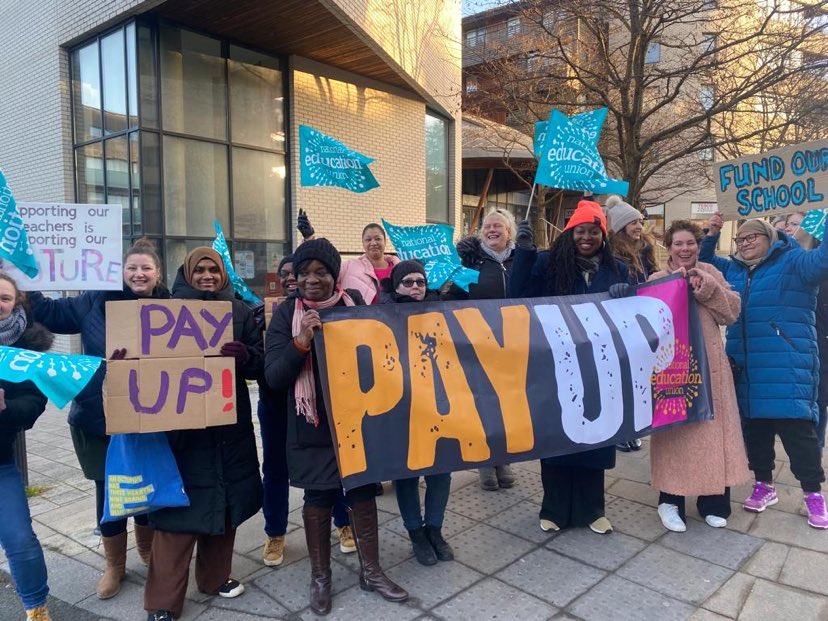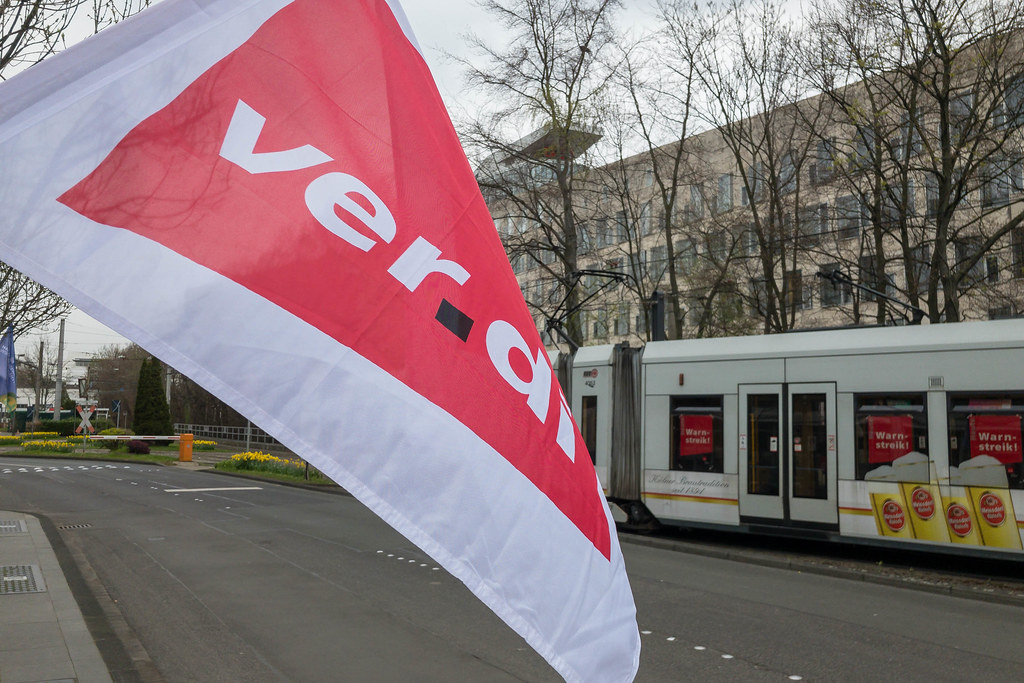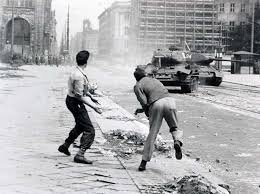Everyone who works in the public sector in Britain is experiencing a deep crisis of underfunding. There is also a crisis of a government that just doesn’t care for ordinary people, whether they’re at work, taking a train, seeing their doctor, calling an ambulance in an emergency, or taking their kids to school or university.
The dysfunction in the UK is affecting more people each week. Poverty has not seen at this scale for a long time. In my job as a Special Needs Teacher I meet parents of kids who need high levels of care. Following the sell-off of social housing throughout the 1980s and 1990s, they are just not getting any.
A mum told me that her three autistic kids are trying to catch the mice that are swarming all over their home ― including in their beds ― to play with them. I first met her and her kids several years ago, when they were living above a crack den. She and her seven children have been evicted twice since then for rent arrears. She only gets benefits for two of those children because of the benefit cap. Their only get out is a “rape clause”. You read that right. You can only get benefits for more than two children if you can show they are the result of rape.
The Conservative government is experiencing an existential crisis. During the pandemic they were forced to admit that austerity was a political choice, as they suddenly found the cash to bail out the economy, printing money as fast as they could throw it at businesses.
As Downing Street hosted party after party, friends of the ruling clique stuffed their pockets with our cash, benefiting from a ‘VIP lane’ for contracts that resulted in unusable PPE, and a track and trace system that was as effective as their advice to flag down a bus when being pulled over by a rapist in a police uniform. (Yes, this was real advice they gave to British women).
How the crisis affects ordinary people
The depth and breadth of the crisis means that many people are very, very angry. Their anger is bursting out in strike action, and the strikes are popular. The BBC struggles to find a disgruntled commuter for the evening news. Government ministers, with a weird throbbing vein in their forehead and a second job as a lobbyist, respond by rehashing worn out tropes – blaming Trans women or scroungers or migrants in sinking dinghies. Gramsci would be having a field day.
The strikes are mainly affecting the public sector and the partly privatised transport sector. We are now experiencing rocketing inflation, particularly in the prices of food and gas and electricity. Our energy bills increased on average by 54% last April, by 80% in October and are set to rocket again in April 2023. Last year, wages increased on average by 6%, in an already low wage economy. Wage rises for most of us have not matched inflation for more than a decade. The Bank of England’s response is interest rate rises which have had no effect on prices but have made housing even more ridiculously expensive than it was already.
Layers of people who were just getting by are really feeling the pinch. My own colleagues at school are talking of skipping meals – only eating in the evening if their kids leave something on their plate. We all laugh about how we have been sleeping in tracksuits and hoodies. But we really have, it has been a hard winter. I know I’m not the only person getting into work early to warm up.
The anger has also been generalised by the fact that we all worked through Covid. Then, we were told we were essential workers and were allowed to skip the queue at the supermarket. Nurses were clapped in the streets every Thursday night. There were pictures all over the media of a pale and shaky Boris Johnson clapping outside no 10. That was before we knew he was joking about the bodies piling up. Our bodies.
Anger turns to action
A few months ago pay ballots started returning resounding majorities, smashing the thresholds the government introduced to stop strikes. The RMT and ASLEF rail unions, a few bus companies, then nurses who had never struck before, ambulance workers and physiotherapists, junior doctors, my union, the NEU (education workers). Even headteachers are re-balloting (not a sentence I ever thought I’d write). The list goes on and on.
Instead of meeting union leaders and negotiating pay deals, the government responded with new anti-union laws that would mean public sector workers could be sacked for striking. The gauntlet down, the unions had to move. They called a day of action.
My union experienced a period of significant growth when we faced the government down over keeping schools open during Covid. Recently that growth has been dwarfed, with 30,000 new members and many new reps reflecting a mood of absolute rage in schools. The fact that the 5% pay rise teachers got was unfunded, and came out of school budgets which were already stretched to breaking, was the last straw. Our ballot was the largest vote to strike of any union in British history. Ever,
Layers of older workers haunted by the Miners’ Strike’s long shadow and younger ones raised in the gap of historically low struggle, have all been enraptured by the possibility of change, unleashing notable leaps in consciousness. The Trade Union movement has suffered from sectionalism for a long time. This is breaking down, as everyone recognises the Tory government and the bosses in general as an enemy that must be defeated with coordinated action. A General Strike, once unimaginable, is now a common discussion on picket lines.
It’s no coincidence that the strikers are nearly all workers classed as ‘essential’ during the pandemic. A veil was lifted in those strange days. Suddenly we could all see who kept the world running. And we saw what we have in common and identified our common enemy.
Falling respect for politicians, the police and Royals
And of course, we lost respect for authority. Not just the politicians who partied and drove to Barnard Castle, who set up a VIP lane of our cash for their mates. The police were revealed to be misogynistic and racist. A woman was abducted, raped and killed by a serving police offer nicknamed ‘The rapist’ by his mates. Another of these mates, nicknamed ‘The Bastard’ has been sent down for numerous crimes against women including 24 rapes.
The naked bodied of two sisters Bibaa Smallman and Nicole Henry were photographed by police at the scene of their murder. The photos were shared on a WhatsApp group with their grubby friends. Refuge, the charity for Women left 1,000 rotten apples outside the Met headquarters as that is how many more cases are still to come to trial.
The crisis in the Royal Family has also fed the sense of crisis. The ruling class are no longer able to go on ruling in the same way. We have discovered that the people who rule us are a bunch of rather dull racists. The arrival of Meghan gave them an opportunity to renew their dusty institution. They blew it when they asked her what shade her baby was going to be. They just couldn’t keep the hundreds of years of empire under wraps for the sake of etiquette.
Diversity on the picket lines
As the strike wave has grown, picket lines have reflected the British workforce – loads of women, notably cleaners in the RMT who have been campaigning against the outsourcing of their work and low pay, black workers, many first-generation migrants. The strikes are an example of the unity that can be built in action.
The government control the supposedly private rail companies. Anger at their lack of response resonated with other public sector workers and union leaders started to concede to the pressure from below to ballot over pay. When the government announced its intention to make strikes in the public sector partially illegal, the Royal College of Nurses passed the extremely high threshold required for action and started their first ever strike action alongside ambulance workers represented by Unite and Unison.
Health workers are universally loved and respected, as is reflected in all the polling. What surprised all the commentators was that all strikes were proving popular with the public and the attempts to paint us as lazy, greedy, controlled by union barons blah blah blah…. fell flat amongst the wider working class.
On the 16th January, after a really effective campaign using the bigger network of reps we had built during our fight to resist unsafe Covid working, the NEU returned a result of 90.44% (92% and 58%% in Wales) for strike action on a turn out of 53%. The support staff ballot didn’t quite make it over the threshold. Between that announcement and the strike day a week and a half later 40,000 people joined the NEU. In my workplace support staff moved from the unions that had recommended they accept the shoddy deal they were offered.
The first strike day was coordinated with the UCU (University and College Union), ASLEF (train drivers) and the PCS (Civic Servants). On 1st February, an estimated half a million workers walked out on strike, with big rallies up and down the country. In London, 40,000 people rallied in the middle of a train strike.
What was remarkable was the resurgence of picket lines.. At many schools, large picket lines enabled support staff, who didn’t have a mandate for strike action, to join the strike. In my own workplace, support staff outnumber teachers about 6 to one and were the driving force behind a noisy, lively picket line. These are workers who are paid between £9.25 and £12.45 an hour.. It had a carnival atmosphere with singing and laughter and home-made placards.
We joined the huge demo. For many the first time they had attended a protest. One of my colleagues was so excited she made a TikTok of the day with pictures of everything we did to Lily Allen’s Fuck You Very Much. This perfectly summed up the mood and confidence of the day.
What next?
It was clear on the huge London demo that many of the union leaders were shocked by the success of the day and the turnout. They had told the police to expect 12,000 people. They will instinctively be looking for ways to put the brakes on the movement. At the same time, they know they have to challenge the ramping up of the anti-trade union laws. Some of the better ones, like our Kevin Courtney, are clearly excited and buoyed up by the movement.
Looking at the RMT and UCU, who have been out on on occasional days for months now, we need to increase the level of pain on the government by coordinating strikes between different unions, and crucially by increasing the number of strike days. This will require an argument. Many people are worried about the effects of the strikes on their ability to pay their rent and feed their kids, so wider solidarity will be essential. But it can be done and the results could be stunning.
Generalisation is running through people’s consciousness, the way a flame runs up a fuse in a Tom and Jerry Cartoon. At my speech at the London rally, I said that it wasn’t refugees and asylum seekers that took away Speech and language therapy from my kids or Trans women who are forcing our support staff to go and work in supermarkets. This got a huge cheer of approval.
When we fight, it is very clear who is on our side. Struggle washes away all the bullshit the other side spray around. Continuing to bring questions of oppression to the staffrooms and union groups is essential, because it is very clear that the right have decided to go hard with the culture war, as they have nothing else to bring to the table.
We will need to tap into all the anger at all the disgusting neglect this government has directed towards ordinary people, and make links between our low pay and the institutional racism and misogyny of the system.
For instance, the fact that Bibaa and Nicole, the sisters who were murdered and photographed by police, were local and related to someone I work with fed the anger in an oblique way. The way we are all struggling to survive fed it directly. One of my colleagues said to me the day after the strike, “we succeeded in one day to do what the management failed to do in three years. We brought everyone together. It was great”. We are working on setting up an anti-racist group at work now to challenge the racism in the curriculum and the way work is organised.
Rosa Luxemburg talked about how the political and economic join up in Mass Strikes, and show that the challenge is to take on the state. In this sense, I am going to propose that we stop allowing the police in our schools. Wish me luck.




